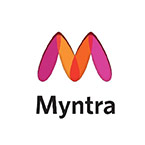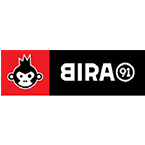OUR POLICIES
ANTI-BRIBERY/ANTI-CORRUPTION POLICY FOR VENDORS/SUPPLIERS/SERVICE PROVIDERS
It is the responsibility of the parties to conduct business in an honest and ethical manner. Busybees Logistics Solutions Private Limited (“Company”/”us”/”we”/”our”) takes a zero- tolerance approach to bribery and corruption and are committed to acting professionally, fairly and with integrity in all our business dealings and relationships, wherever Company operates, and to implementing and enforcing effective systems to counter bribery. The Service Providers/Vendors/Suppliers (collectively referred to as “Vendor(s)”) of the Company are prohibited from engaging in any bribery or potential bribery. This includes a prohibition against both direct bribery and indirect bribery, including payments through third parties. If any Vendor suspects or becomes aware of any potential bribery involving the Company, it is the duty of that Vendor to report their suspicion or awareness to the Company. Bribery is a serious criminal offence in India Bribery offences can result in the imposition of severe fines and/or imprisonment, exclusion from tendering for public contracts, and severe reputational damage. The Company therefore takes these responsibilities very seriously. The Company will uphold all laws relevant to countering bribery and corruption. The purpose of this statement is to set out responsibilities for the Vendors to comply with all the applicable laws against bribery and corruption.
Who must comply?
This Policy applies to all Vendors of the Company. Vendors include service providers, suppliers, franchisees, business associates, consultants, contractors, trainees, seconded staff, home-workers, casual workers and agency staff, volunteers, interns, agents, sponsors, or any other person associated with the Company.
In this Policy, third party means any individual or organization that a Vendor may come into contact with during the course of his/her engagement with the Company, and includes actual and potential clients, customers, suppliers, distributors, business contacts, agents, advisers, business associates and government and public bodies including their advisors, representatives and officials, politicians and political parties.
This Policy does not apply to the Clients or Customers of the Company. However, if a Vendor becomes aware of a past, present, or contemplated improper payment or request to engage in a violation of this Policy by any third party (including any Client or Customer), the Vendor must immediately report the same to the Company.
What is bribery? Bribery is:
The offer, promise or receipt of any gift, hospitality, loan, fee, reward or other advantage to induce or reward behavior which is dishonest, illegal or a breach of trust, duty, good faith or impartiality in the performance of a person's functions or activities (including but not limited to, a person's public functions, activities in their employment or otherwise in connection with a business); or
The offer or promise of any gift, hospitality, loan, fee, reward, other advantage or anything of value to a Government Official with the intention of influencing the Government Official in the performance of their public function, to obtain a business advantage; or the gift, offer or promise of anything of value to any commercial party for the purpose of improperly obtaining or retaining a business advantage.
“Anything of value” should be broadly interpreted to include cash, gifts to family members, forgiveness of a debt, loans, personal favors, entertainment, meals and travel, political and charitable contributions, business opportunities and medical care, among other items.
Bribery includes not only direct payments, but also authorizing or permitting an employee or third party to commit any of the acts or take any part in the actions identified above.
Similarly, Company’s Vendor shall not solicit or accept any such payments and favors. favors.
A non-exhaustive list of examples of Bribery is set out in the following sections. It is not acceptable to: to:
- give, promise to give, or offer, a payment, gift or hospitality to secure or award an improper business advantage;
- give, promise to give, or offer, a payment, gift or hospitality to a Government Official, agent or representative to facilitate, expedite, or reward any action or procedure;
- accept payment from a third party knowing or suspecting it is offered with the expectation that it will obtain a business advantage for them;
- induce another individual or employee to indulge in any of the acts prohibited in this Policy;
- threaten or retaliate against another employee who has refused to commit a bribery offence or who has raised concerns under this Policy;
- give or accept any gift where such gift is or could reasonably be perceived to be a contravention of this Policy and / or applicable law; or
- engage in any activity that might lead to a breach of this Policy.
If confronted with a request or demand for an improper payment or other violation of this Policy, the request or demand must be immediately rejected and reported to the Company. Similarly, if the Vendor knows or believes that an improper payment has been or will be made, the Vendor must also report such payment to the Company.
Gifts and Hospitality This Policy does not prohibit normal business gifts or business hospitality, so long as they are reasonable, appropriate, modest, and bona fide corporate hospitality, and as long as their purpose is to improve the Vendor’s image, present its products and services, or establish cordial relations.
Gifts and Hospitality:
- Must be of modest value i.e. valued at less than INR 10,000.
- Must comport with local law and custom. Any gift must be permitted under both local law and the guidelines of the recipient’s employer; and it must be presented openly, with complete transparency. To the greatest extent possible, business gifts should be limited to holidays or other customary gifting occasions (e.g., Diwali).
- Must be duly approved. Normal business hospitality must always be approved at the appropriate level of Vendor’s management.
- Must not be intended to improperly influence. Vendor should always assess the purpose behind any hospitality or entertainment. Hospitality or entertainment with the intention of improperly influencing anyone's decision-making or objectivity, or making the recipient feel unduly obligated in any way, should never be offered, or received. Vendors should always consider how the recipient is likely to view the hospitality. Similarly, Vendor must also decline any invitation or offer of hospitality or entertainment when made with the actual or apparent intent to influence their decisions.
- Must not have the appearance of improper influence. Gifts can in some cases influence, or appear to influence, decision-making, for example by persuading the recipient to favour the person who made the gift over his own employer. Vendor should think very carefully before making, or receiving, gifts. Gifts can occasionally be offered to celebrate special occasions (for example religious holidays or festivals) provided such gifts are occasional, appropriate, totally unconditional, and in-fitting with local business practices. No gift should be given or accepted if it could reasonably be seen improperly to influence the decision-making of the recipient.
- Certain gifts are always prohibited. Some types of gifts are never acceptable: gifts of unlawful products, unethical items (e.g., adult entertainment), or gifts that involve cash or cash equivalent (e.g. gift certificates, shopping cards, loans, stock options, etc).
- Modest promotional gifts are permitted. It is acceptable to offer modest promotional materials to contacts e.g. branded pens. Use of one’s position to solicit a gift of any kind is not acceptable. However, occasional receipt of unsolicited gifts of a very low intrinsic value from business contacts provided the gift is given unconditionally and not in a manner that could influence any decision-making process is not prohibited.
- Must be properly recorded. The gift must be properly recorded in the Vendor’s books and records.
- Personal payment does not cure. Vendor’s employee may never pay on their personal account for gifts or hospitality that would otherwise violate this Policy.
- Political Contributions and Charitable Donations: The Vendor may make donations but only if they are ethical and in compliance with this Policy and local applicable laws; and only if they are made to a bona fide charitable or political organization. No donation should be made which may, or may be perceived to breach applicable law, or any other section of this Policy. In particular, Vendor personnel may not make political or charitable donations, whether in their own name or in the name of the Vendor, to obtain or retain business or to gain an improper business advantage.
The Vendor hereby agree to comply with the below terms:
1.Compliance with Law and Policy
The Vendor agrees that its performance will be in full compliance with the Policy and all applicable anti-corruption laws and regulations, including the Indian Prevention of Corruption Act, 1988, the U.S. Foreign Corrupt Practices Act of 1977, as amended (“FCPA”), the UK Bribery Act, 2010, the applicable financial recordkeeping and reporting requirements of the U.S. Currency and Foreign Transaction Reporting Act of 1970, as amended, the Indian Prevention of Money Laundering Act, 2002, and any anti-corruption laws or anti-money laundering laws in effect in the jurisdictions where the Company conducts business. Accordingly, Vendor agrees that in connection with its activities under this Agreement, neither Vendor nor any agent, affiliate, employee, or other person acting on its behalf will offer, promise, give, or authorize the giving of anything of value, or offer, promise, make, or authorize the making of any bribe, rebate, payoff, influence payment, facilitation payment, kickback, or other unlawful payment, to any government official, political party, or candidate for public office in order to obtain or retain business, gain any unfair advantage, or influence any act or decision of a government official.
2.Annual Certification
The Vendor agrees to certify annually its compliance with the Policy and the applicable anti-corruption laws and regulations by executing a form supplied by the Company for this purpose.
3.Audit Rights
The Vendor shall keep books, records, and accounts with sufficient detail and precision as to clearly reflect its transactions and the use or disposition of its resources or assets. Vendor agrees that the Company has the right to audit the transactions related to Vendor’s execution of its obligations at any time and upon reasonable notice.
4.Training
The Vendor agrees that it shall offer regular anti-corruption compliance training programs, at least annually, to educate its employees about the requirements and obligations of anti-corruption laws and this Policy. The Vendor shall ensure that all employees of participate in such training and maintain appropriate training records.
5.Subcontractors
The Company must provide the Vendor with prior written authorization before the Vendor hires any subcontractor to provide services that would require interaction with any government entity or government official on the Company’s behalf. In the event that the Company approves Vendor’s use of the proposed subcontractor, the subcontractor must agree, in writing, that in connection with its activities related to this Policy, neither the subcontractor nor any agent, affiliate, employee, or other person acting on its behalf will offer, promise, give, or authorize the giving of anything of value, or offer, promise, make, or authorize the making of any bribe, rebate, payoff, influence payment, facilitation payment, kickback, or other unlawful payment, to any government official, political party, or candidate for public office in order to obtain or retain business, gain any unfair advantage, or influence any act or decision of a government official.
6.Right to Terminate
In the event that the Company determines, in its sole discretion, that the Vendor has engaged in conduct that violates the Policy or the applicable anti-corruption laws and regulations, the Company immediately shall have the right to suspend payment and to suspend or terminate the Vendor. The Company shall also have the right to suspend payment and to suspend or terminate the services provided by the Vendor if the Vendor does not comply with the ongoing anti-corruption compliance obligations set forth in this document or if the Vendor does not successfully complete periodic due diligence re-screening.
7.Government Affiliations
The Vendor represents and warrants that neither the Vendor nor any of its directors, officers, partners, shareholders, employees, agents, or representatives is a government official. The Vendor represents that it has informed the Company of any close family relationships between any of its directors, officers, partners, shareholders, employees, agents, or representatives and any government officials. The Vendor agrees to notify the Company if (a) any such close family relationships arises or (b) any director, officer, partner, shareholder, employee, agent, or representative becomes a government official. Close family relationship means parents, siblings, spouses, and children.
8.Form of Payment
The Vendor agrees that the payments shall be made by the Company to the Vendor after receipt by the Company of an invoice detailing the products or services for which the Vendor is seeking payment. All payments by the Company shall: (i) be made solely by check or wire transfer for the benefit of, and to the account of, the Vendor and not to any individual employee or representative of the Vendor; (ii) be denominated in Indian Rupees or any other currency as agreed or required; and (iii) not be in cash or bearer instruments.
9.Obligation to Provide Information
The Vendor agrees to provide timely information to the Company regarding any changes to with respect to its obligations under this Policy. The Vendor also agrees that it will submit to periodic due diligence report to the Company.
10.Cooperation with Investigations
The Vendor agrees to provide assistance and cooperation in any investigations related to potential violations of the Policy or the applicable anti-corruption laws and regulations, including the U.S. Foreign Corrupt Practices Act.
11.Indemnities
The Vendor shall indemnify Company, its promoters, officers, directors, employees, affiliates, agents, sub-contractors and other representatives from any claims, demands, liabilities, suits, proceedings, penalties, costs, or expenses of any kind (including, attorneys’ fees and expenses) that are brought against Company, on account of breach by the Vendor of any of the above obligation.






















